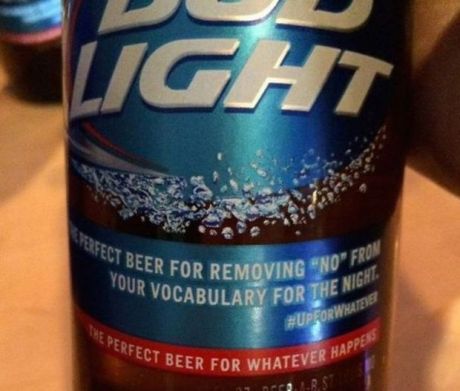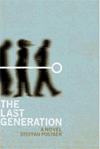Honestly, Bud Light’s “Up for Whatever” campaign was ill-advised long before the controversial label.
April 30, 2015
No means no… unless you’re drunk.
This week, Anheuser Busch got taken to the woodshed by numerous publications for a tone-deaf piece of copy that appeared on one of its Bud Light labels:
“The perfect beer for removing ‘no’ from your vocabulary for the night”
Functioning like Tweets these short bursts of copy or “scrolls” were created in support of the brand’s campaign, “Up for Whatever” created by advertising agency, BBDO.
To say I am not a fan of Bud light’s campaign is an understatement. Douche-y by design, this creative idea casts barely drinking age millennials as bar hopping pinballs with zero on their minds other than having A GOOD TIME!
Before going any further, I should add that I once worked on this brand’s advertising. For reasons I won’t fully get into, I loathed the experience. You might think casting bikini-clad babes in Hollywood a highlight in any young man’s career. I’m not denying that it wasn’t fun… at first. But like any binge, it became monotonous and even disgusting. Casting was a charade. For my stupid scripts, any girl would do. Frankly, the lights had been turned off strategically when the light beer category shifted from being a low calorie option to rocket fuel for party animals.
Yet, even in this hopelessly sophomoric category, “Up for Whatever” grates as much as anything out there. Ever. To me, the dumbass “scroll” about “removing the word no from the night’s agenda” is just more proof that being ‘up for whatever’ often leads to bad outcomes. Like rape charges.
That being said, the harpies digging their claws into AB have blinders on. If one is going to hate on Bud Light do so against the whole campaign not just a pimple on its ass. Any fool can see “up for whatever” is a euphemism for removing the word “no.” Why the hell do you think the brand is waving this flag if not to incite 20-somethings into acting like irresponsible teenagers (or irresponsible teenagers to act like irresponsible adults.) Splitting hairs over a specific execution is hypocritical and silly.
University profs weigh in. More context from Newsweek: http://www.newsweek.com/three-advertising-professors-bud-light-fiasco-326830
“Up for Whatever” continues to negatively blow up in social media: http://adage.com/article/cmo-strategy/bud-light-s-label-gafe-lasting-damage/298378/?utm_source=daily_email&utm_medium=newsletter&utm_campaign=adage&ttl=1431049359






 The Happy Soul Industry
The Happy Soul Industry The Last Generation
The Last Generation